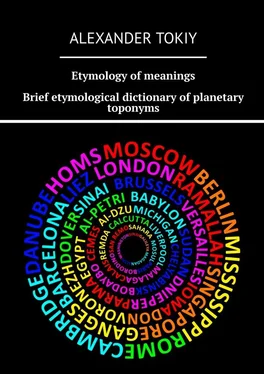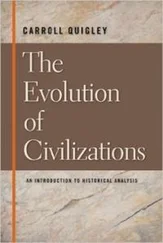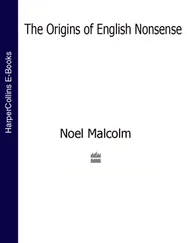The brilliant Russian conductor Teodor Curentzis once said that harmony is a point. How right he is! Harmony is the point, the unity, of which the first biblical commandment speaks. So “etymon” is a unified understanding of our actions, our existence. This is the truth.
The second part of the word “etymology” goes back to the biblical “logos” (word). Academician Dmitry Likhachev has repeatedly warned that we understand or interpret some ancient texts incorrectly. In his opinion, the translation of the gospel text: “In the beginning was “logos” (word\“slovo”)—incorrectly conveys the meaning of the word “logos”. In the ancient Greek Dictionary of Joseph Dvornitsky, “logos” has 34 different “nests of meanings”. In our reading, this word goes back to three ancient roots: “lo”, “kho” and “s”. The first has the meaning “beloved”, the second is the sound of breathing-means “dusha” (soul), and the third means “sacred water”. What meaning could these sounds have acquired over the centuries? We can agree with academician Likhachev that we are talking about what distinguishes man from the animal world – about the ability to think.
However, Likhachev could be wrong because as the great Russian poet Fyodor Tyutchev said: “A spoken thought is a lie.” Fedor Ivanovich knew perfectly well that the ancient Greek word “legu” is translated as “to speak”, but in Russian it is interpreted quite differently. Still, let’s focus on what is close to us. “Etymology” is the desire to get to the truth, to understand the meaning and essence of our being. Jesus Christ, pronouncing the Covenant: “Verily I say unto you,” I sincerely wanted people to get rid of lies, deception and delusions. So we are trying to understand and interpret the deep meaning of our language, our speech, our being.
Wisdom teaches that if you are confused and can’t find the right way, go back and start all over again. This “technique” is acceptable even for functional parts of speech: prepositions, conjunctions, particles and interjections. Modern science does not give an unambiguous understanding of how these words occurred and where to look for their “primitive” meanings. My heart tells me that they were born together with the protoroots and have a similar nature.
Let’s start with the simplest – the ancient preposition “k”—in English “to”. If the sounds “kh”, “g “and"k” came from the human breath, then the ancient preposition “k” belongs to this group. Its meaning is close to the meaning of “way”, “direction”—where to go, what we will come to.
The preposition “o”—in English “about”—got its meaning not so much from the pronounced sound, but from the shape of the lips in which it is formed – around, about or about something.
The ancient preposition “u”—in English “near”—, being the sound of breathing, had a special connotation – it attracted the attention of a tribesman to some circumstance, phenomenon, object. It is the sound of moaning, the sound of crying. This is an “invitation” to come closer, to share others in your pain. Its later values are “near” or “around” or otherwise marked “accessory”, the closeness, the belonging to someone, a sense of ownership.
The sound “a”—in English [a] —was always the sound of an open mouth. It can have a variety of meanings. In combination with the sounds of feeding, it forms a combination of “ma” or “na”, indicating the desire to eat, the readiness to take food. A child will never ask to be fed with a combination of “m” and “o” sounds. The same applies to the combination of “na”, which we pronounce when we offer food to the child. By the way, I have repeatedly seen that a child, when holding out his hands to food, also utters a cherished and kind “na”, as opposed to a restrictive “no” (but).
Oddly enough, the ancient preposition “po”—in English “at”—is also formed from the sounds of breathing. “P “is the sound of “puffing”, the sound of “locking” the lips and then releasing the air with a little effort. It’s either puffing or farting. Over time, this sound has grown more complex meanings, has passed through centuries of evolution and now it denotes what surrounds us. The later meaning “along” appeared during numerous human journeys. But at the time when the first sounds and meanings were put into speech, people lived in burrows, and the preposition “po” had a very modest scale.
The preposition “s”—in English “with”—originally went back to the sounds of drinking and the protoroot “ms”. In some languages, the meaning of the words “drink”, “water” has retained the sound “m”, in others—“s”. The Japanese have preserved the root completely. In Hebrew, both the word “sea” and the word “water” retained the “m” sound. In Turkic languages “su” means water, in English—“sea”. However, the question remains, how was the preposition “s” formed with the meaning “together”? Most likely, its origin was connected with the rules of hunting, or some rules of visiting a water hole, or with the ancient instinct of emptying the bladder together.
In general, the combination the sounds of “puffing” and “water” in ancient times formed the root “ps”. It is found in many languages around the world – as well as protoroot “pkh”. Protoroot “pr” is also the sound of “puffing”, but not simple, but aggressive, when something is pierced or flatulence is released too deliberately.
Finally, derived from the breath sounds include protoroot “ku”. If taken literally, it meant “at the head”, “near the head”, something intelligent. Over time, it received several values. For example, the meaning of “ruka” (hand) is “separate from the head” but “with understanding”. From this root came such words as “kulak” (fist), “kul`tya” (stump\an amputated arm), “kul`tura” (culture). And the name Akulina since ancient times had the meaning “inept”, “crooked”, and this is inherent in the name, where the sound “a” is a certain opposite. The protoroot “ru” also has its origins. If “u” is “near”, then the aggressive “r” was intended to separate from this “near”, to become “separate”.
There are a number of prepositions, phonemes, and protoroots those are associated with the action of a person, with his\her contact with the environment, penetration into it. In this regard, the preposition “v”—in English “in\into\inside”—is interesting, it means effort, tension, desire to get inside something. It is directly related to the extraction of insects or small animals from hidden places: whether it is the stem of a plant, or the trunk of a tree, or a mink in the ground. Ancient man needed not only to search for food, but also to be able to extract it by looking inside. This explains why both the Russian word “zhivot” (belly) and the Latin word “vita” have the main sound “v”.
You can make out one of the forms of the preposition “v”—the basic word “vnutri” (inside). The sound “n” indicates the taste of food, protoroots “tr-dr” goes back to “aggressive poking”, or, simply, holed something or pierced. Protoroot “dr” is a “hole where delicious food is hidden” and you need to get to it. The ancient preposition “v” is also echoed by the sound “b”, which is related to it. In many cases, it expresses a kind of “passionate satisfaction”—both from the food taken, and from other pleasures, including sexual ones.
The possibility of penetration and contact brought to life the ancient prepositions “to”—in English “that”—and “do” (in English “this”). The “t” sound was a “poking” sound that indicated obstacles. These obstacles, as in a dense forest, can be around-hitting branches on the cheeks, blocking the way with tree trunks or making you stumble over rocks. Only after looking around and getting used to it, you begin to definitely designate a place with an obstacle—“to” (that) place, “eto” (this) place.
Читать дальше












